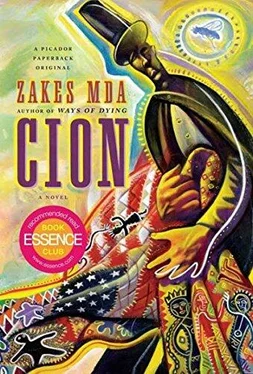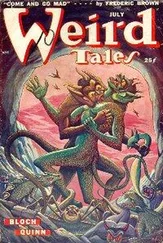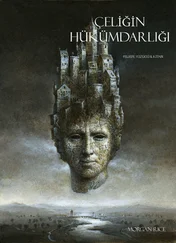The boys’ resolve to escape was strengthened by the flogging they received in the same week for different transgressions. Abednego was caught drumming. A month before, The Owner had decreed that drums and all percussive instruments were prohibited at Fairfield Farms. He had been told by his spies that wily slaves used drums to send messages and to broadcast news of escapes. There were murmurs of disgruntlement in the community, for drums were essential in church services. Abednego particularly found it difficult to give up his pastime. Although his dream of one day playing the drums in church was now smashed, he woke up some nights when he believed the whole plantation was asleep and practiced on his drum, beating it softly under the sycamore tree outside the cabin. He was caught by an insomniac overseer who, after failing to extract a bribe from the Abyssinian Queen in exchange for his silence, reported the boy to The Owner. Abednego was seriously flogged.
Nicodemus, on the other hand, was punished for learning to read and write, which was a very serious crime for a slave. It turned out that when one of The Owner’s daughters came to the storytelling sessions at the slave quarters she struck up a close friendship with Nicodemus. One thing led to another and they ended up teaching each other what they knew best: she teaching him how to read and write, he teaching her how to fashion a reed flute, how to tongue and slur it to produce full-bodied notes, and also how to play the commies — the unglazed earthenware marbles that the white kids bought from the plantation store. She was so excited that she blurted out these activities to everyone at the big house, including her mother. Nicodemus received the whipping of his life.
The Owner was becoming increasingly restless, and there were good reasons for that. Lately untoward things were happening at the plantation. A trusted white servant escaped with her African lover, crossing the Ohio River at Gallipolis and melting into the Underground Railroad, possibly to Canada. The Owner felt that he was losing his grip because it was the second time there had been such a scandal on his plantation — although on the first occasion the escape was foiled and the woman — who had disguised herself as a man to facilitate the escape — was now languishing in the county jail charged with the theft of Mr. Fairfield’s property. The property, of course, was the man with whom she was escaping with a view to settling in Ohio where they could live as husband and wife since they had heard that there was no slavery in that state. The man was severely flogged and then chained outside like a dog for weeks on end. The Owner hoped this would serve as an example to all those who planned to take such daring but foolhardy action. But now here again he was faced with a similar situation, and to add to his frustration the escape had been carried out successfully. Slave chasers with their vicious dogs and trusty steeds had returned empty-handed.
Random escapes had happened at Fairfield Farms before, but this caused a buzz of excitement in the slave community because it involved a white woman. Whites rarely escaped from the plantation because they had better privileges than black slaves.
The Owner had devised various ways of keeping white women as slaves. Even though white slavery was thought to have come to an end soon after the Revolutionary War, at Fairfield Farms the practice continued right into the 1840s because white women were essential for the breeding of mulatto children. Gone were the days when The Owner could obtain mulatto children from mating white men with black women. With the large-scale breeding that was happening at the plantation, there were just not enough white men to service the black women. White men were free to seek their fortunes elsewhere. And they did. They worked their way up and bought their own farms and their own slaves. Or sold their labor in the cities. Mating white women with black studs was the answer. In an age where women were considered inferior to men in any case, and wives were the property of their husbands, it was easier and more cost-effective to hold white women in bondage than to employ white studs.
The Owner got away with keeping white slaves by marrying white women in reduced circumstances to blacks, which enabled him to hold the women legally as slaves. If any curious official asked questions, especially those self-righteous church people who cringed at the very notion of white slavery and condemned it as unchristian, The Owner took refuge in the one-drop rule, claiming that the women were rightly “colored” concocting some distant non-white ancestry for the wenches. Often he randomly designated some of the women octoroons or quintroons, using manufactured evidence. Their mulatto children were therefore born into slavery.
At Fairfield Farms there were mulattos who had been bred so white it was impossible to tell them apart from the rest of the whites, and they were all slaves. As they were too white to sell easily on the open market, they served The Owner by being overseers and slave catchers.
The breeding of mulatto children who looked mulatto rather than white had become the core business of Fairfield Farms; hence the indispensability of the white female who had to mate with pitch-black studs. On many occasions the boys saw young white women receiving a good whipping for refusing to sleep with black studs. Nicodemus knew that one day he would be one of those studs and would be having a field day among specially selected females of all colors. Abednego, on the other hand, knew that sooner rather than later his head would be on the auction block.
The very thought made the Abyssinian Queen frantic and she intensified her performances. Taking her cue from the Monkey Wrench she packed provisions of extra clothes, dried fruit, ropes and knives for the boys, and had two bundles ready in case they had to take off without warning. Abednego’s bundle was wrapped in the crazy quilt and Nicodemus’s in the sampler.
But now her stories and songs included celebration, for the plantation grapevine had brought it to her that Nicodemus’s father had been manumitted in Kentucky, and had settled across the Ohio River in a community of free blacks on the outskirts of Cincinnati.
“Y’all gonna be free, my boys,” she told them. “One day y’all gonna cross the River Jordan to be with Nicodemus’s papa.”
The ghost of Nicodemus takes me back to the city of Athens. I am sitting next to Obed, who is driving Ruth’s rusty GMC and is enthusing about his famous Native American forebear, Harry Corbett, who distinguished himself in this or that theater of the Civil War. He compares him to the strong and ancient sycamores, hickories and walnuts among which the truck is burping its way. I listen without comment, my squinting eyes fixed on a perfectly round sun floating like a big silver balloon above the black trees that are wading in fog. Its rays cannot penetrate the denseness. I wonder how Obed’s eyes are able to see through it since he is driving like a stuntman in a cheap movie chase scene even though only a few feet of the road in front of him are visible. To add to my discomfort the window on his side is half-opened — it is stuck and can’t roll up, he explains — and a crisp wind hits against my face. The smell is clean and fresh, but the chill pierces my skull with needles that leave me with a headache.
He is crunching on tortilla chips as he expresses his disappointment that the man’s name was Harry Corbett and not Singing Ankle or Coughing Horse or something “Indian” like that. He blames the white man for proselytizing among his forebears until they lost their names that were full of poetry and music so that today he is saddled with an “Indian” ancestor with a name like Harry Corbett. I remember that it was with great pride that Ruth told me when the two of us sat on the porch yesterday afternoon that Harry Corbett was a good Christian man who had done away with “them funny Indian names.” I also remember that when I sought assistance from the sciolist on how to deal with the ghosts of the past in rural America, he told me always to bear in mind one thing: memory thrives on transforming the past to palliate the present.
Читать дальше












